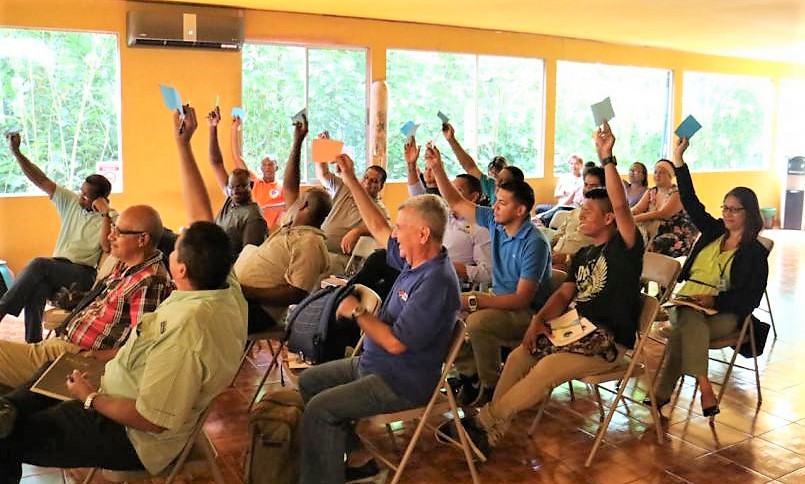Reciprocal Conservation easements to assure long term conservation and financing of protected area
The Oasis de la Campana real estate project allocates a sector that is subdivided into properties of 0.5 hectares for real estate purposes and another sector of 1000 hectares to conservation of Mediterranean forest and its biodiversity. Through the legal framework of reciprocal environmental easements between the parcels of the real estate sector and the area destined for conservation and the delivery of these lands to a non-profit Foundation, the legal protection in perpetuity of the 1000 hectares is ensured.
On the other hand, this same legal framework ensures that the common expenses of the owners of the real estate subdivision finance not only the maintenance of their common areas but also the maintenance activities of the wilderness area to be conserved. This includes protection and restoration activities such as: construction and maintenance of perimeter fences to prevent the entry of livestock, personnel for horseback monitoring to control fencing deterioration, poaching and fire prevention; restoration activities with planting of native plant species and scientific studies with universities. And maintenance of trails, signage and infrastructure as viewpoints and a refuge.
The legal framework in the country that allows the implementation of reciprocal easements for environmental purposes.
The legislation of the countries of Latin America to be derived from the Roman Code usually include this legal framework. On the other hand alglosaxon laws also have similar systems or through the Royal Right of conservation. In this way it has a wide application in different countries.
Many times there are very old legal frameworks such as easements that for lack of imagination have not been applied and that can be very useful for the conservation of biodiversity and protected areas in perpetuity.
In this way, reciprocal environmental easements also ensure perpetuity protection and the financing of the maintenance costs of the wilderness area to be conserved, which is one of the most critical financing in a protected area. Many times protected areas are created or land is purchased for this purpose, but then there is not the necessary financing to ensure their protection permanently. This is a good example of how to do it and that has been operating for more than 20 years in Oasis de la Campana.
On the other hand, allocating the conserved lands to a non-profit Foundation ensures a correct administration.
The owners of the subdivision earn by protecting their lands and by preserving 1000 hectares, they ensure the protection of the landscape and have environmental services that contribute to the whole community.
